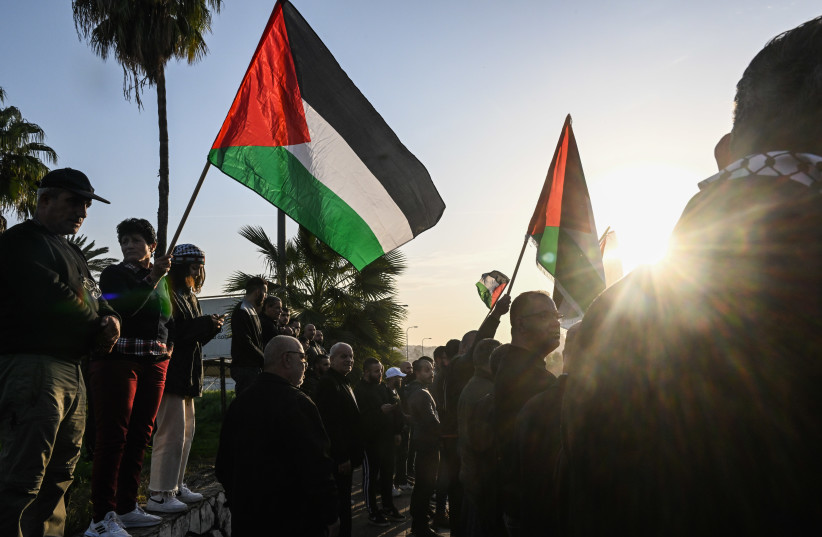The rising Israeli-Palestinian violence in Jerusalem and the West Bank resembles the Second Intifada, Central Intelligence Agency (CIA) head William Burns said after returning from a visit to Israeli and the Palestinian territories.
“A lot of what we are seeing today has an unhappy resemblance to some of those realities we saw” 20 years ago, he recalled during a talk he gave at Georgetown University last Thursday.
He recalled that he had been stationed in Israel and the Palestinian territories during that time and mentioned his recent visit.
US is hoping to prevent explosions of Israeli-Palestinian violence
The US, he said, is working as closely as it can with the Israeli and the Palestinian security services “to prevent the kind of explosions of violence that we have seen in recent weeks,” Burns said.
He spoke in the aftermath of the Palestinian Authority's decision to suspend its security ties with Israel and in advance of the upcoming Ramadan period and Passover holiday in April.

The overlap of those two religious events has in the past sparked violence and the United States and Israel have been particularly concerned about how those festivals will impact existing tensions.
Last week, US Secretary of State Antony Blinken visited Cairo, Jerusalem and Ramallah to speak with top officials. Part of the conversations involved talks about ways to decrease tensions.
Prime Minister Benjamin Netanyahu also traveled to Amman late last month to meet with King Abdullah, who then meet with US President Joe Biden at the White House.
He also left two high-level officials on the ground Assistant Secretary of State for Middle Eastern Affairs Barbara Leaf and the State Department’s special representative for Palestinian affairs Hady Amr to work with Israelis and Palestinians to de-escalate the situation.
“We continue to work closely with both Israelis and Palestinians to support their efforts to end this cycle of violence.. as we look to advance the longer-term prospects of a negotiated two-state solution between Israelis and Palestinians.”
Ned Price
US State Department spokesman Ned Price told reporters in Washington on Monday that after the trip, “we continue to work closely with both Israelis and Palestinians to support their efforts to end this cycle of violence.. as we look to advance the longer-term prospects of a negotiated two-state solution between Israelis and Palestinians.”
He responded directly to Burns's Second Intifada statement by noting that “it is precisely the reason Secretary Blinken from Israel, from the West Bank, from Egypt, encouraged Israelis, Palestinians to take urgent steps themselves that would de-escalate this situation and lead to greater degrees of security and stability for Israelis and Palestinians alike.”
